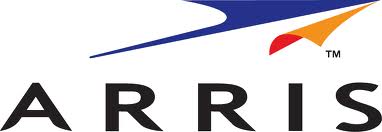
Comcast’s David Cohen
Comcast is an American success story, but Americans that do business with the cable giant are getting slighted by overpriced, too-slow broadband service.
In a commentary piece in the Financial Times, Edward Luce indicts the company that bought NBC-Universal for pay-for-play campaign contributions that have kept the company from much regulatory scrutiny and free to charge whatever it likes for a service now increasingly considered a necessity.
Comcast’s key employee as far as Washington is concerned is its senior vice-president, David Cohen, who also happens to be one of President Barack Obama’s largest fundraisers.
The revolving door between Comcast in Philadelphia and the federal government in Washington is always spinning.
Of Comcast’s 121 lobbyists, 85 are former government employees, according to Open Secrets, which monitors money and politics.
“Comcast employs the royalty of K Street [lobbyists],” says Sheila Krumholz, head of Open Secrets.
In 2011, the year the FCC approved Comcast’s merger with NBCU, the company spent more than $14 million on lobbying – the ninth-highest of any US company (it ranks 49th on the Fortune 100 list).
Luce adds Meredith Atwell-Baker, a former Republican FCC commissioner, took an executive position at Comcast shortly after voting to approve the merger-buyout between the cable operator and NBC.
This month Comcast acquired the 49 percent of NBC-Universal it did not already own in a $16.7 billion transaction that got less attention at the FCC than the lunch menu at the Chinese takeout down the street.
So while Comcast enriches itself, customers are left with Internet service that is nothing to brag about.
While only 7% of the U.S. is wired for fiber broadband, more than half of South Korea and Japan can buy fiber-fast broadband service from a range of broadband suppliers. Back home, Comcast and the local phone company have built a comfortable duopoly:
The company’s meteoric rise in the past decade parallels the relative decline of Internet service in the US. In the late 1990s the US had the fastest speeds and widest penetration of almost anywhere – unsurprisingly given that it invented the platform. Today the US comes 16th, according to the OECD, with an average of 27 megabits per second, compared with up to quadruple that in countries such as Japan and the Netherlands.
The contrast on price is just as unflattering. The average US cost for 1 Mbps is $1.10 compared with $0.42 in the UK, $0.34 in France and $0.21 in South Korea. It is not only places such as Hong Kong that put the US into the shade. Countries such as Estonia, Portugal and Hungary offer a significantly better Internet service. South Koreans joke that when they visit the US they are taking an Internet vacation. Yet bringing the US up to speed appears to be low on Mr Obama’s list of priorities (it did not even get a mention in his State of the Union address last month).


 Subscribe
Subscribe AT&T has announced its intention to acquire the last remaining pieces of Alltel that were left behind after Verizon Wireless acquired most of the company in 2008.
AT&T has announced its intention to acquire the last remaining pieces of Alltel that were left behind after Verizon Wireless acquired most of the company in 2008. Alltel’s cellular network is based on CDMA technology, incompatible with AT&T’s GSM network. Alltel subscribers are expected to receive credit towards the purchase of new GSM equipment as Alltel’s network is retired.
Alltel’s cellular network is based on CDMA technology, incompatible with AT&T’s GSM network. Alltel subscribers are expected to receive credit towards the purchase of new GSM equipment as Alltel’s network is retired. Comcast Corporation has announced its intention to pay $150 million for part-ownership of Arris Group, Inc., which manufacturers set top boxes and cable modems.
Comcast Corporation has announced its intention to pay $150 million for part-ownership of Arris Group, Inc., which manufacturers set top boxes and cable modems.
 Time Warner Cable is expanding its footprint in the capital region of New York with the acquisition of independent Princetown Cable Company, which serves around 600 subscribers in Princetown, Duanesburg and Rotterdam in Schenectady County.
Time Warner Cable is expanding its footprint in the capital region of New York with the acquisition of independent Princetown Cable Company, which serves around 600 subscribers in Princetown, Duanesburg and Rotterdam in Schenectady County.